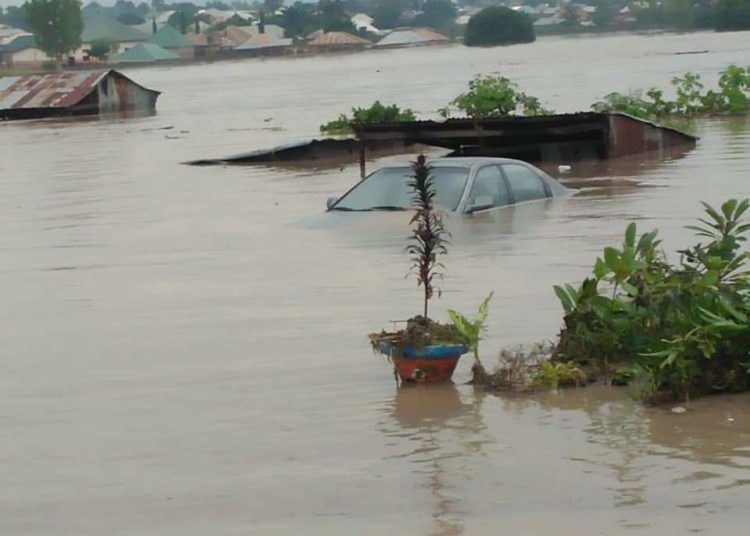For some years, flood-induced disasters have continued to pose a challenge to Nigerians, especially those living along the flood plains stretching up to 13 states. It has remained a recurring event which everyone, including the authorities, know will happen yet, by some curious streak, it manages to take everyone by surprise. It is about to happen again this year.
It is, doubtless, a natural occurrence but one which impact can be mitigated through proactive measures and plans by those in government whose duty it is to ensure that the people likely to be affected are put in a position to manage the situation.
It is not contestable that disaster management goes beyond bags of rice, blankets and mattresses. Those, though useful, are hardly sufficient to give the required succour to distraught victims of the disaster. They are, at best, reactions when the harm is already done. The appropriate thing to do involves taking actions that are long term and long lasting to prevent the floods, in the first instance, from causing the type of dislocation in the lives of the people that has remained dreadful, even if neglected.
The argument has been on for years about Cameroun and its Lagdo dam. Because that country needs to ease the pressure of the water from its own end, the necessity to release excess water in its reservoir becomes inevitable. Part of that argument is that Nigeria ought to build a dam down stream to collect the water from Lagdo so as to prevent it from having a free rein on territories on its path with the attendant damages it is capable of causing.
The damages recorded in the country due to a lack of action on the matter have not been severe enough, in the estimation of the authorities, to compel them to do what is necessary, building a dam on the River Benue plain, to bring a lasting solution to the issue of flood and its impact. In spite of the economic advantages of the dam as an infrastructure capable of enhancing aquaculture – fishing, drainage potentials for all- season farming, as well as animal husbandry, it has, seemingly not received the level of attention it deserves. Added to these advantages is the possibility of the dam generating electricity.
Already, the government, at all levels in the country, are concerned more about palliatives. That is to say, relief materials that will be given to victims of the disaster when it occurs. Added to this is the annoying call on the people to relocate to areas not likely to be affected by the flood. For the record, the people living in those areas are not masochists who derive pleasure from pain. They are the poorest of the poor who have no alternative place of abode, who need urgent intervention from government to get away from the furry of the flood.
For this category of people, evacuating entails abandoning their homes which may also likely include the source of their livelihood. From the perception of the authorities, they are stubbornly refusing to listen to warnings from government. Are they?
Opening Of Lagdo Dam Will Worsen Flooding In Nigeria, NEMA Warns
In our opinion, they are scared of life in internally displaced peoples (IDP) camps where, to a large extent, they are abandoned to their fate. We are not unmindful of the fact that climate change is part of the causative factor of this adversity and it is a universal phenomenon, if we are to reckon with disasters elsewhere around the world.
Our worry as a newspaper is that if the country is so incapable of managing predictable flood from rivers, what will happen if the country is to experience wild fires, hurricanes, storms and tornadoes?
The major challenge is that the government is good at throwing money on problems, unfortunately, in the wrong direction. Soon, the country will be inundated with contract awards for the supply of relief materials and tents in IDPs’ camps. These steps are good but they will be better if that money is put together and deployed for projects similar to lagdo dam that will have lasting effect, positively, on the nagging issue of floods and the displacement of poor citizens being asked to deliberately compound their poverty by abandoning the little they have in place.
If they must do this, it is our considered opinion that they must necessarily get help from federal, states and local governments. Right now, this is not happening and we have every reason to feel for those living on the flood plains as the water comes rampaging.
Up to the time of writing this editorial, most state governments are still planning to evacuate flood-prone communities. Other agencies of government such as National Inland Waterways Authority (NIWA) and National Emergency Management Agency (NEMA) claim to be on top of the situation. We believe them in the hope that their words will eventually count for something in the lives of the prospective flood victims.





